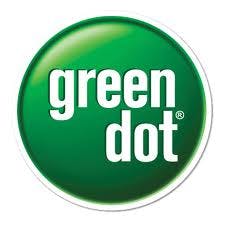
Is Green Dot Corporation (NYSE:GDOT) Wall Street’s next superstar stock, or just another bubble amid rising valuations in hyper-competitive, fast-growing industries?
The business of prepaid cards
As many as 68 million Americans live without access to a bank account for any number of reasons: lack of transportation, bad history with banks, or high fees, according to a 2011 estimate from the FDIC. Many are turning to prepaid cards as a solution.
Prepaid cards aren’t bank accounts — they’re basically a gift card you can use anywhere. Reloadable, users can add funds directly to their prepaid card at retailers who sell Green Dot Corporation (NYSE:GDOT)’s “MoneyPaks,” a code purchased for cash that can be redeemed online or over the phone to add a balance to a Green Dot Corporation (NYSE:GDOT) card.
The business is tremendously profitable. Green Dot Corporation (NYSE:GDOT)’s signature line generates substantial fee income from monthly account charges ($5.95), non-network ATM service fees ($2.50 each), and bank teller withdrawal fees ($2.50). Not to mention, direct deposits are free, but all other card loads cost $4.95. An active cardholder is a very profitable customer.
All these fees add up, but Green Dot’s fees are still lower than alternatives. Of the ten largest consumer banks, Green Dot had lower fees than eight competitors. That’s what made it so popular with low-income, unbanked Americans. But now, the competition is heating up, and Green Dot is no longer the cheapest prepaid card on the block.
Amex vies for an unlikely market
Known as Bluebird, American Express Company (NYSE:AXP)’s product offering is difficult to beat. It boasts the lowest fees of any prepaid card (no monthly fee), a nationwide network of ATMs, and the ability to add cash at any Wal-Mart Stores, Inc. (NYSE:WMT) location. For Wal-Mart Stores, Inc. (NYSE:WMT), this was its chance to move into the banking business, an expansion it has wanted for more than a decade. A partnership with American Express Company (NYSE:AXP) fills that void — and it keeps its core, lower-income consumer coming back to the store to top up card balances.
Banking customers who use prepaid cards are more likely to stop in a Wal-Mart Stores, Inc. (NYSE:WMT) on payday, which leads to higher customer traffic and a larger average ticket per customer.
Why Green Dot should worry
Without question, Green Dot has the largest installed base, and it has a first-mover advantage. However, the barrage of competitors knocking at the door of the prepaid market should give investors pause.
American Express Company (NYSE:AXP) is no new player in the card industry. Bluebird is going after Green Dot’s most profitable customers — those that make use of direct deposits.
Slide 11 of Green Dot’s June presentation reveals just how central direct deposit customers are to the model. The company reports that its 700,000 direct deposit users stick around for an average of 20 months, generate roughly $400 in revenue to the company ($20 per month, on average) vs. $130 in lifetime value from cash and check reloaders.

Should American Express Company (NYSE:AXP) go after market share while promoting its lower fees for direct deposit customers, Green Dot investors will feel the pinch. Members who receive payroll on their Green Dot cards are the company’s single source of growth.
Valuing prepaid cards
Competition is the best friend of the consumer, but the bitter enemy of the investor. Competitive markets destroy profitability, transferring benefit to the consumer, not the shareholder.
As a pure-play on prepaid cards, Green Dot is still attractive. The company trades at an equity value less net cash of $470 million, which prices it right at 10 times free cash flow. A free cash flow yield of 10% is still tempting for a levered investor.
Cheap stocks are often cheap for a reason. Green Dot faces one of the most difficult environments in business: competing with a larger company that can afford to lose money on a relatively microscopic subsidiary to steal your market share.
Green Dot’s historical free cash flow generation is impressive, but that was when the company had a monopoly on Wal-Mart Stores, Inc. (NYSE:WMT)’s distribution. Now it has to compete with the likes of a cheaper, fee-friendly American Express Company (NYSE:AXP) Bluebird.
The best opportunity for investors could be a buyout. Green Dot’s network and intangible brand has real value, but it needs to be monetized through a bolt-on acquisition before other players step up to the plate to create their own solutions. With many 13G filings on the stock and not a single 13D, it doesn’t look like there’s much pressure from the inside to seek an acquirer.
Without an activist on board and Green Dot’s executives touting their own M&A plans, it looks like Green Dot has every intention to compete ruthlessly for customers. That may be a money-losing strategy, given the competition is well-capitalized and capable of running losses to acquire market share.
The article How Can This Card Company Compete? originally appeared on Fool.com and is written by Jordan Wathen.
Jordan Wathen has no position in any stocks mentioned. The Motley Fool recommends American Express. Jordan is a member of The Motley Fool Blog Network — entries represent the personal opinion of the blogger and are not formally edited.
Copyright © 1995 – 2013 The Motley Fool, LLC. All rights reserved. The Motley Fool has a disclosure policy.




